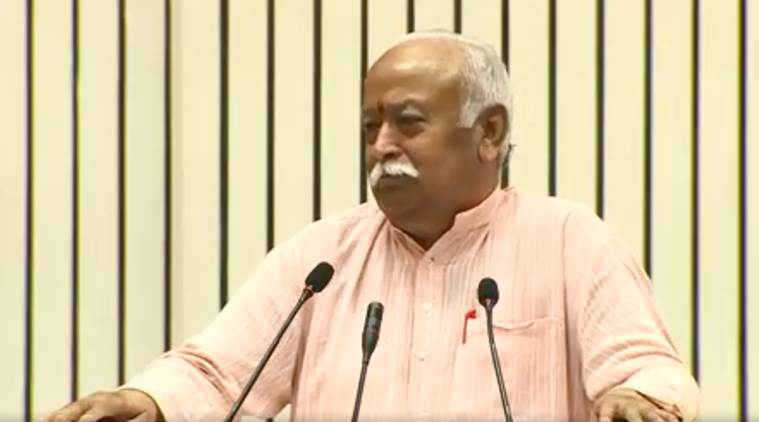What is the similarity between reservation and the special status granted to Kashmir ?

The issue is of relevance since Mohan Bhagwat raked up the issue of reservation within a fortnight after Article 370 providing special status to Kashmir was abrogated. Mohan Bhagwat speaking at Gyan Utsav event at IGNOU in New Delhi on August 18 called for a discussion on the contentious issue of reservation in a “harmonious atmosphere”. Although this wasn’t the first time the RSS chief was pushing forward the debate around reservation, the present timing is of significance.
So far as constitutional provisions are considered, Article 370 providing special status to Kashmir is listed in part twenty one containing Temporary, transitional and special provisions. Article 46 on the other hand providing the basis for affirmative actions commonly called reservation is contained in part four of the constitution as one of the Directive Principles of state policy. The two provisions unrelated though have one thing in common, the constituent assembly debates establish that both were included in the constitution as a temporary measure.
Article 370 was included as a special provision which was supposed to be effective till the time Kashmiris themselves decided upon their fate as per the guidelines mentioned in their constitution. It was other matter that since after the dissolution of the constituent assembly of J&K and after the refusal of India to withdraw it’s army and create enabling atmosphere for conducting a plebiscite, and after the numerous presidential orders that diluted the ambit of Article 370, it’s nature as a temporary provision had changed to being permanent at least in practice.
Similarly the provision for affirmative actions in the form of reservation were in principle a temporary relief with the aim that the historically marginalized and oppressed sections would be provided with certain preferential treatment till the time they achieve a socio-economic status at par with the fellow citizens. However, the widely prevalent numerous social malaise and demand for inclusion in mainstream from representative voices have ensured that the range of affirmative actions only gets wider with time instead of being phased out.
Just like the nationalistic politics of mainland India ensured the dilution of Article 370 & changed its nature from temporary to permanent, it was the caste politics and evils associated with caste that prolonged the concept of reservation.
Sangh which has forever been against reservation, after abrogation of Article 370 is smelling an opportunity and is smartly trying to push the debate against reservation by raising questions that reinforce in public memory the in principle temporary nature of this extraordinary provision. A commonly posed question by Sangh and it’s affiliated outfits is why is the provision of reservation based on caste and not on income. Another question they ask which underlines the temporary nature of reservation is that “how long” the reservations will be given on caste. Mohan Bhagwat in the IGNOU event repeated this question and urged people to engage in a dialogue around the subject, sufficiently indicating that the time has come for temporary provisions to be done away with.
It’s in the interest of citizens that they exercise caution and guard themselves from falling prey to any such propaganda. The Dalits and OBC’s who are nurturing ambitions of an upward mobility and have developed Hindutva affinity after investing their time and resources in the last five years should be very careful of the tide of communal polarization that has swept them off their foot. In their fit of insanity before rejoicing at the injustice done to Kashmir, they must think about their own future as to what would it be to be robbed of the constitutional protection, to be once again reduced to the level of serfs in a Brahmanical structure.
Md. Aariz Imam is a Jamia Millia Islamia alumni, freelancing for citizen journalism portals reflecting upon the old and contemporary from the sub altern’s point of view .
Courtesy: Counter Current
